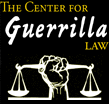
![]()
MARIA RAMOS
Some guerrilla lawyers dedicate themselves to one area of the law, others develop interests and talents in many fields. Since demystifying the law and raising consciousness are critical tasks of the progressive lawyer, teaching and writing call out to many of us. Maria Ramos is an example of a person who has combined practice with a heavy emphasis on educating others, both within and outside of the legal arena.
Maria grew up in New Jersey. In 1976, Maria's family home was opened as a shelter for battered women. Shelter Our Sisters, S.O.S., labeled by the press as the first shelter in North America for battered women and children, was the first shelter housing battered women to receive federal funding. Having been educated about grassroots activism and leftist politics, she says she was also educated about sexual politics when her mother came out as a lesbian in 1975.
Maria's teenage years were filled with crisis calls, rescue pick ups, battles with local police and the intense resistance of a society not wanting to acknowledge the reality of domestic violence. As a teenager, she was a member of a dramatic theater group that performed plays for local schools, churches, and civic groups to increase community awareness about the issue of domestic violence.
Maria did her undergraduate work at the University of California at Berkeley and then graduated from the University of Pennsylvania law school in 1987. In college, law school and in her first year of practice she did work in many fields: juveniles in custody, adult prisoners, developmentally disabled males in a residential home, immigration and family law. She spent a year in Spain and then settled into the San Francisco Bay Area and joined the Family Violence Prevention Fund as a bilingual advocate for victims of domestic violence.
Maria has the ability to make the law accessible to lay people. This talent plus her commitment to educating diverse groups has made her an effective and popular speaker. She has lectured and trained law enforcement personnel, probation officers, community workers, health aides, high school and college students. Currently she is writing a national Benchbook for judges on issues of cultural factors in domestic violence cases.
Using legal skills to build community power is an important role we can play. Maria not only empowers community groups she also set up the Community Legal education Project to help monolingual individuals. Using law students based out of a New College clinic and funded by a grant from the San Francisco Foundation, the project educates and trains people who have legal claims in Small Claims Court, a legal forum in California for laypeople with a jurisdiction of $5000. Lawyers are not allowed to practice in Small Claims Court and the law students at the Project do not appear in court, they teach monolingual people how to handle their own claims.
In order to stay sane while fighting in the legal system it's helpful to take time for ourselves, our nuclear or extended families and our friends. Maria has found that non-legal writing is one outlet for her passion and energy. She has published several pieces of creative non-fiction, including a Commentary for the Berkeley Women's Law Journal (Volume II, 1996) and a piece in Skin Deep: Women Writing on Color, Culture, and Identity, (Crossing Press, 1994).
Currently Maria is working as a consultant and trainer on issues of multiculturalism, communication and conflict resolution. She and Chris Kanios, former dean at New College, are opening a mediation practice associated with the Center for Guerrilla Law, 503 Dolores, San Francisco, 94110, (415) 464-9645.